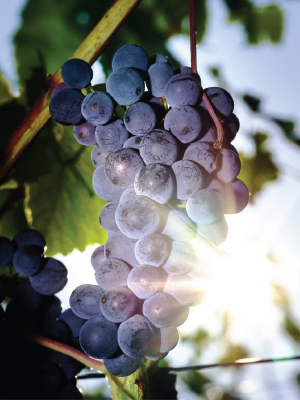Soil & Sea: reports from our producers
This article was originally published in May 2016

Better French wine may be an upside to climate change. As weather has become increasingly hotter since 1980, it has produced early-ripening fruit, according to new research. Early-ripening fruit historically is associated with highly rated wines. In California, meanwhile, escalating temperatures have come coupled with drought, meaning regions such as Napa and Sonoma could become too hot to produce premium wines in the future.
Cocoa from West Africa is under threat from air pollution. The West African monsoon, which brings moist air, is already very variable, but the extra pollution could dampen the monsoon — meaning chocolate lovers may have to pay significantly more until the skies are cleaned and optimal cocoa-growing weather returns.
Almond farmers are planting a relatively new variety of almond called Independence because they’re easy to harvest, produce tasty almonds, and, most importantly, are self-fertile — meaning they technically don’t need bees to pollinate their flowers. That’s a boon for farmers, who can spend $180 for one hive of bees for a season. Farmers may still use bees with Independence trees, but only about half as many hives as with other almond tree varieties.
GE alfalfa is spreading in the wild, with more than a quarter of the sites tested in Western states showing transgenic contamination, according to a U.S. Department of Agriculture report. Critics had warned GE alfalfa has a pollination radius of up to five miles and that coexistence with organic farmers is not possible. The trend threatens non-GMO verified meat and dairy.
The price of shares in Monsanto are down almost 30 percent over the past 12 months following declining sales of GE seeds and the companion herbicide, Roundup, deemed a “probable carcinogen” by the World Health Organization.
